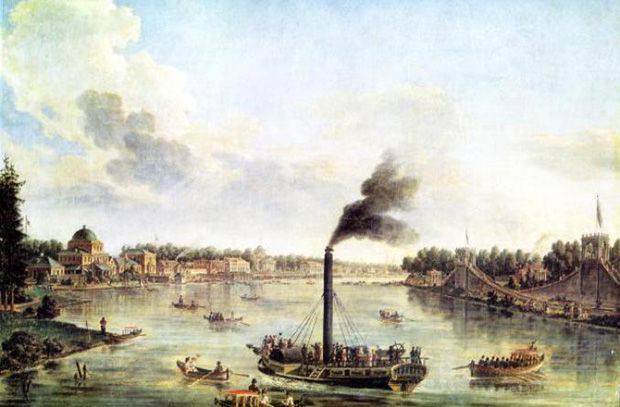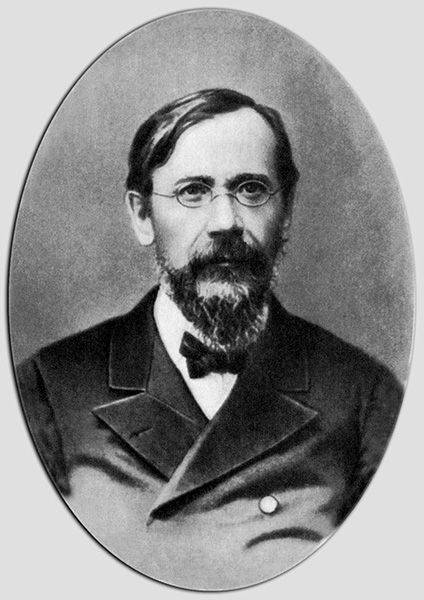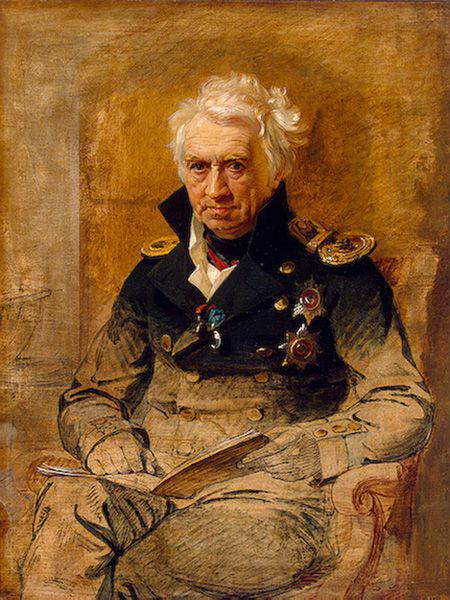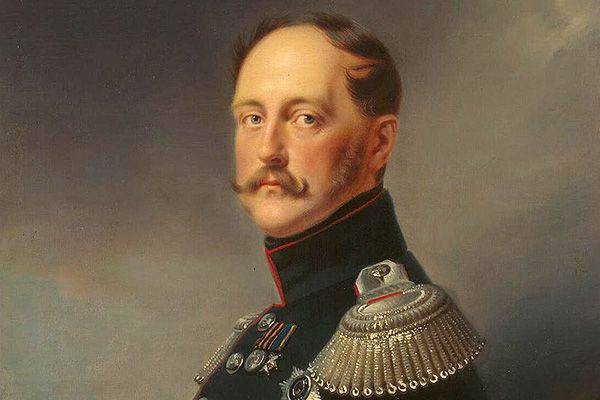Don Quixote autocracy

During the reign of Nicholas I, Russia again ceased to be Europe
The reign of Nicholas I, which lasted almost three decades, is often called the apogee of autocracy: Russia, saving European thrones from revolutions, systematizing its own laws for the first time and giving management a kind of clear system, seemed to be an exemplary state - proof that the monarchy can do without constitution. But behind the brilliant façade was a number of unresolved problems that would cost dearly to both Nicholas and his heirs - the question of abolishing serfdom, the growing economic and technological backwardness of Russia from Europe, the absence of civil liberties. As is known, the result of the reign of Nicholas was the defeat of Russia in the Crimean War. Contrary to the bravura statements, in which the tsar himself quite sincerely believed: “Where the Russian flag is raised, it should not descend there,” ultimately, the Russian Empire showed its weakness in the area that the emperor considered one of the most important . What did contemporaries think about the Nicholas era and the emperor himself?
Not a humanist
Nicholas I is known for his desire to enter into the smallest details of public affairs - the personality of the emperor, his ideas and common sense could not help but reflect on the course by which the state moved. “When people talk about Russia, they talk about Emperor Nicholas,” the Austrian Chancellor Metternich once remarked in one of the letters to the Austrian envoy in St. Petersburg, Count Fikelmon. That is why, in order to understand his epoch and the state system created by him, one must first get an idea of the personality of the emperor himself.
Nicholas should not be considered a soulless, limited man, as he was often tried to be represented in Soviet times. His letters indicate that he was genuinely grieving that his rule began with the suppression of the Decembrist uprising. “Your will is done: I am the emperor, but at what price, my God! At the price of the blood of my subjects! ”- the monarch writes to his brother Konstantin Pavlovich. However, Nicholas can not be considered a deep, spiritual man. Known unfriendly descriptions of the emperor, made by many of his contemporaries, - they often emphasize the cruel, cold and arrogant expression of the face of the sovereign. “He was beautiful, but the beauty of it doused with cold; there is no face that so ruthlessly exposed the character of a man as his face. The forehead, rapidly running backward, the lower jaw, developed at the expense of the skull, expressed inflexible will and weak thought, more cruelty than sensuality. But the main thing - the eyes, without any warmth, without any mercy, winter eyes, "- wrote about the appearance of Nicholas Herzen. At the same time, Nikolay is characterized from a good side by a number of features that his closest associates testified to: he was an excellent father of the family, a good and faithful spouse. The emperor was pious, in the morning and in the evening he always prayed on his knees for a long time.
The emperor who loved military orders adhered to Spartan customs in his life. Thus, Baroness Maria Fredericks recalled: “To himself Emperor Nicholas I was extremely strict, led the most abstinent life, he ate significantly little, mostly vegetables, drank nothing but water, sometimes a glass of wine and that, I do not know when this happened; at dinner I ate every evening a plate of the same soup of mashed potatoes, never smoked, but did not like others to smoke. He walked twice a day on foot, necessarily — early in the morning before breakfast and after lunch and at noon, he never rested in the afternoon. ” If the emperor was not feeling well, which, incidentally, happened very rarely, he would put on an old overcoat and sleep like a soldier — on a thin mattress full of hay. At work, the emperor spent 18 hours a day.
A major drawback of this statesman was that, unlike the brothers, Nicholas did not receive education and a systematic education, befitting a real emperor. As the king himself confessed, he "saw only compulsion in the teaching and studied without hunting." According to his own intellectual inclinations, he was not a humanist, as they would say today: he valued technical and military sciences above other sciences. For the statesman of this baggage was obviously not enough. Some practical knowledge about his country and life abroad could give two trips that he made at 20-year-old: driving through a number of Russian provinces, Nikolay saw many of the troubles of his country with his own eyes, and in the UK he became acquainted with the fruits of civilization, created in the most advanced state at that time.
Nikolay himself recognized his lack of education and even tried to fill this gap - however, he was not created for office classes. This feature of his personality was not a secret for European monarchs either: for example, Queen Victoria wrote about the Russian Tsar: “His mind was not processed, his education was careless.” This lack of education and a certain narrowness of outlook will further play their sad role.
Vanity
It should be noted that the first steps of the new emperor aroused enthusiasm in society: Pushkin was returned from exile, Vasily Zhukovsky, a supporter of liberal views, was appointed mentor to the heir - the future Alexander II. Apparently, initially Nikolai was determined to rule in the spirit of the late Alexander Pavlovich. “He came to the throne with a very modest supply of political ideas, which his elder brother brought so much here,” historian Vasily Klyuchevsky will rightly write about Nicholas. For example, Nikolai was inclined to think about the need to abolish serfdom - this idea he learned from the lectures of Academician Storch, who taught him political economy; of course, he was aware of his brother’s intention to destroy this archaic institution. In addition, the process of the Decembrists showed him that one of the main reasons for dissatisfaction with the autocracy is the inability of the tsarist government to carry out the liberation of the peasants.

However, Nikolay had even less ideas about how to do this than his brother. Despite the fact that the new emperor took some steps to discuss the problem - for example, in 1839 he set up a secret committee to deal with changing the life of serfs, over the years the emperor lost interest in this problem, probably not seeing a way to solve it without to shake the foundations of the state. Soon it became clear the difference between the characters of the two brothers - Nikolay, by inertia, was pursuing a course of reform, but did not have any definite plan how to carry them out.
One of the peculiarities of his reign was the “crusade” against corruption: the emperor initiated regular audits of state institutions and even himself participated in some of them. “At first, perhaps, the new emperor was close to the idea of reforms, under the fresh impression of the recently experienced events, but he set himself the immediate task of getting into the situation beforehand and began to diligently study the dirtiest details. He personally audited the nearest capital institutions: he would fly into some state chamber, frighten officials and leave, making everyone feel that he knows not only their affairs, but also their antics, ”he maliciously writes about Nicholas Klyuchevsky. The fight was extremely unsuccessful. “As a result,” Anna Tyutcheva writes, “he only piled up around his uncontrolled power a pile of colossal abuses, all the more pernicious, because they were covered by official legality from the outside, and that neither public opinion nor private initiative had the right to indicate them, opportunities to fight with them. ”
The euphoria about the accession of the new emperor disappeared before our eyes - it became obvious that Nicholas was striving to fight dissent. Among the major measures taken by him for this purpose, we can note the establishment in June of 1826, as part of the imperial office of the Third Division, which became the political police authority. Censorship was another way to fight dissent - he granted freedom of action to Conservative Alexander Shishkov, minister of public education, who developed a new censorship charter, which the society called “cast-iron”. Being too voluminous and confusing, the document was soon revised, however, the next charter was extremely tough. Moreover, over time, the number of institutions that could censor literary works and journal articles increased.
The fight against freethinking was not accidental in the politics of Nicholas - it stemmed from his views on the Russian state as not needing fundamental reforms, which over the years it only strengthened. “Nicholas set himself the task of not changing anything, not introducing anything new in the grounds, but only maintaining the existing order, filling in the gaps, repairing the dilapidated ones with practical legislation and doing all this without any public participation, even with the suppression of social independence, by government means alone; but he did not remove from the queue those pressing questions that were raised in the previous reign, and he seemed to understand their urgency even more than his predecessor. So, a conservative and bureaucratic mode of action is a characteristic of the new reign; to support the existing ones with the help of officials - this character can still be defined in this way, ”sums up the reign of Nikolai Klyuchevsky.

Ensign and Peter the Great
Many of those who believed in the good undertakings of Nicholas very soon became disillusioned with him. "There is a lot of ensign and a bit of Peter the Great in him," wrote Pushkin about Emperor Pushkin in the year 1834. That year, the emperor restricted the departure of the inhabitants of the empire abroad, and after 10 years completely banned young people younger than 25 from traveling to Europe - so that they would not pick up on revolutionary ideas. “What is there to learn? Asked the king, with surprise. “Our imperfection is in many ways better than their perfection.” In the same spirit were his judgments about European culture. “Goethe! This vile philosophy of yours, your vile Goethe, who is not a believer in anything, is the cause of the misfortunes of Germany! The emperor exclaimed, speaking of German literature. “These are your domestic heads — Schiller, Goethe and similar scoundrels who have prepared the present mess.”
The general conservatism of the Nicholas era was also manifested in the country's economy. The economic development of Russia in the Nikolayev era went extremely slowly. If in England over the years 30, iron production increased by 30 times, then in Russia - only in 2. Economist Nikolai Bunge, who will become Finance Minister under Alexander III, explained the reasons for Russia's industrial backwardness from Europe by the fact that the Nicholas government created unfavorable conditions for private capital activity: “The government was reluctant to allow public initiative in industry and commerce, ". At the end of the reign of Emperor Nicholas I, there were only 30 joint stock companies.
Under Nicholas, the deficit was constantly growing - in 1850, it exceeded 38 million rubles with a budget of 200 million. A significant part of the budget (up to 42%) was spent not on developing the country's economy, but on military needs. At the same time, the armament at the time of the beginning of the Crimean War was archaic: the fleet consisted mainly of sailing ships, while the British and French already had steam. In the reign of Nicholas 963 was built a mile and a half of the railways, but for such a huge country it was not much - for example, in the United States, which in the middle of the 19th century was not an advanced power, their total length was almost nine times larger. With the beginning of the Crimean War, the deficit began to grow even faster.
Terrible blow Nikolaev era struck on education. “Everything went back, the blood rushed to the heart, the activity hidden outside, began to boil, hiding inside, - not sparing the colors, Herzen describes the state of affairs in culture. - Moscow University survived and began to cut out the first because of the general fog. Sovereign hated him from Polezhayevskaya stories. He ... ordered the students to put on their uniform sertuks, ordered them to wear a sword, then forbade them to wear a sword; gave Polezhaev soldiers for poems, Kostenetsky and his comrades for prose, destroyed the Cretan for the bust, sent us into exile for Saint-Simonism, put Prince Sergei Mikhailovich Golitsyn as a trustee and did not deal more with "this hotbed of debauchery", piously advising young people who had completed the course in the lyceum and in the school of jurisprudence, do not join it. " In Herzen’s words about the emperor there is a certain amount of prejudice - the publisher of Kolokol was inclined to demonize this, by his expression, “broken-up jellyfish”. But one should not assume that only those who were inclined to the liberal or Westernist point of view adhered to a similar opinion about the Nicholas era - a year before the king’s death, Slavophile Alexey Khomyakov wrote about his country:
In the courts of black false black
And the yoke of the slavery of the brand;
Godless flattery, pernicious lies,
And laziness is dead and shameful,
And every abomination is full.

Despite all this, it should be noted that the emperor was not a cruel man: for example, the execution of five Decembrists was the only penalty for all 30 years of Nikolai’s reign. "Deeply sincere in his convictions, often heroic and great in his devotion to the cause in which he saw the mission entrusted to him by providence, we can say that Nicholas I was a quixel of autocracy, a quixel terrible and malicious, because he had the omnipotence that allowed him subordinate everything to his fanatical and outdated theory and trample down the most legitimate aspirations and rights of his age, ”wrote Tyutcheva.
The end of the "Kalmyk demigod"
Without exaggeration, the death of the emperor caused a sigh of relief from the intelligentsia. So, historian Konstantin Kavelin, in a letter to his colleague, Professor Timofey Granovsky, could not hide his joy: “Kalmyk demigod, past a hurricane, a sword, and a skating rink, and a string on the Russian state during 30 years, cut out the faces of a thought, destroyed thousands of characters and minds who spent dissolutely on the trinkets of autocracy and vanity more money than all previous reigns, beginning with Peter I - this is the fiend of uniform education and the nasal side of Russian nature - it died at last, and this is the real truth. " The letter passed from hand to hand and provoked universal sympathy.
The lack of freedom, the passed edge of a reasonable protective policy of the emperor were condemned even by opposite-minded members of the public. Vera Aksakova, who is close to the Slavophile circles, wrote: “Everyone talks about sovereign Nikolai Pavlovich not only without irritation, but even with participation, wishing even to excuse him in many ways. But meanwhile everyone involuntarily feels that some kind of stone, some kind of press has been removed from each, somehow it has become easier to breathe; unprecedented hopes were suddenly revived, a hopeless situation, to the consciousness of which almost with despair at last everything came, suddenly seemed accessible to change. ”
The reign of Nicholas, which at first aroused vague hopes in society, toward its end turned into an example of “how not to be.” The emperor's son and successor, Alexander II, had to dig up the rubble of unsolved problems.
Information